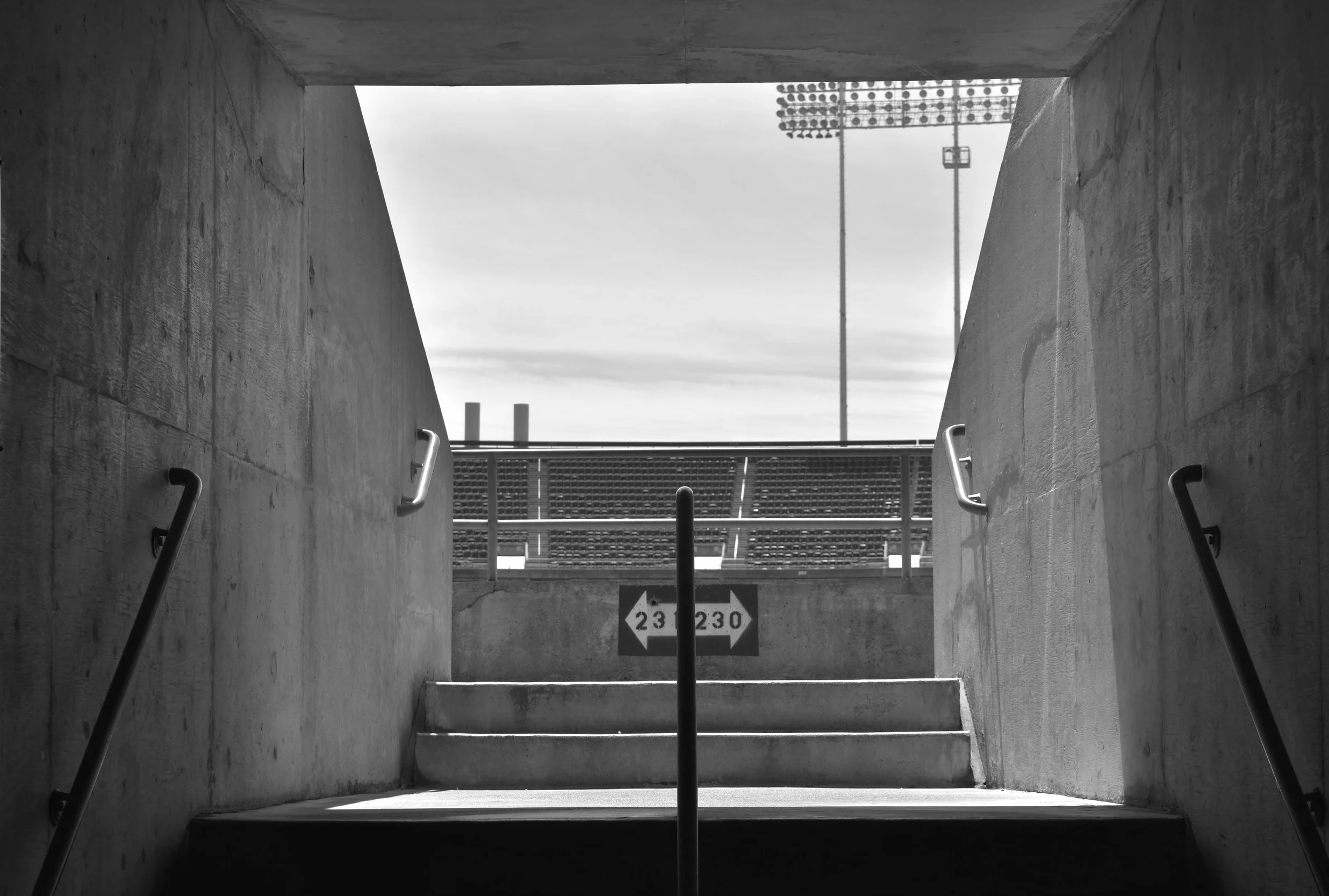Read this fantastic article by Dan Moore on A's fans fight to keep their team in Oakland
/Jane Tyska/Digital First Media/East Bay Times via Getty Images
By Dan Moore
I learned of the Nevada state Senate’s vote to move forward with subsidizing Fisher’s stadium at the same time many A’s fans did: on my way to the Coliseum for the reverse boycott.
I arrived at the Coliseum around 3:45. I made my way to the south lot’s far southeastern corner, where the portable grandstands that ground crews once used to turn the Coliseum into a football stadium still unceremoniously sit, discolored by the sun. That was where the Oakland 68s, an A’s supporters group and the unofficial organizers of the boycott, were setting up. Between iron scaffolds, the group had hung a massive green-and-gold flag emblazoned with Oakland’s official crest: a proud green oak tree, set against a bold gold backdrop. Music—Too $hort, Mac Dre—was already pulsing out of several sets of large speakers. Other flags, raised from lowered tailgates farther out in the parking lot, snapped in the breeze. A food truck was preparing street tacos. Behind a beachhead of tables and lowered tailgates, the 68s were handing out the shirts they’d printed for the event: 7,000 kelly-green shirts reading SELL in white letters across the chest. Before the tables, a sea of fans spilled westward, out into the rest of the parking lot, which was filling up with more fans repurposing the hoods and bumpers of their own cars into drink-making stations and outdoor grills. On open stretches of asphalt, fathers and sons played catch. Between them, middle-aged women snapped back tequila shots.
The festival atmosphere recalled, to my eye, the Oakland tailgates of old, the ones I’d grown up on, the breeze off the estuary carrying a familiar electric bite. The smells that wafted through the air were several different kinds of tantalizing: the sweet grease of grilled meat, the curious zip of gasoline, the seduction of weed smoke. I found this heartening because I had not been sure, after learning of the Nevada state Senate’s affirmative vote earlier in the day, what its effect on the boycott would be. I’d wondered whether the vote would deflate it, skew its vibes more funereal than revelrous. The opposite turned out to be true. By 4:30, the sheer mass of fans—many donning the SELL shirts—had grown from the kind of crowd you’d expect to see at a tailgate to the kind of crowd you might see at a rock concert. News crews were everywhere. Oakland mayor Sheng Thao was there, wearing a Matt Chapman jersey and making statements for the cameras. Chants spontaneously erupted. They’d spark up in pockets, then spread in waves across the lot. SELL THE TEAM! STAY IN OAK-LAND! At first the chants came from fans who sounded more amused than enraged, but as the crowd grew and as more people joined in, the calls acquired cohesion and spine, and soon they were thundering across the parking lot with power-chord force. These were not the laments of the unreachable and wounded. They were exhortations of the ballistic and battle ready. “This is war!” an A’s fan and member of the 68s, Alejandra Leon, said to me at one point, raising her voice over the crowd.
But I don’t want to make it seem like the tailgate was all that serious, exactly. This might have been war, but as Melissa Lockard of The Athletic would later put it, it was also a “celebration of life.” Many fans expressed their frustration with the A’s ownership by placing paper bags over their heads, but they gladly lifted the bags to answer questions or tend to their drinks. People I spoke to told me they’d flown in from Australia, New York, British Columbia. Billie Joe Armstrong of Green Day was there. At some point, ex-A’s pitcher and the team’s current color commentator, Dallas Braden, showed up, and fans mauled him. A’s fan Paul Bailey had brought a pair of cornhole boards painted with the likenesses of Fisher and MLB commissioner Rob Manfred. He’d used their giant mouths as the holes. He’d embossed the bags with poop emojis. “I think he’s just a really great guy,” Bailey told me, referring to Fisher, as we watched a quartet of kids play. “Just a really great guy.”
By 5 p.m., the parking lot seemed to be totally full. The almost gold of the falling sun threw a thousand sparks of light off the tops of the parked cars. On one end of the lot, now, a Latino brass band was playing; not far away, a DJ had set up. I was handed a beer by a young man I’d never identify, thanks to the brown paper bag over his head. “Fuck John Fisher,” he said as he handed me a Modelo and wandered off. I drank it happily.



